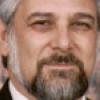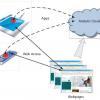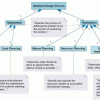Strategic advice to leverage new technologies
Technology is at the heart of nearly every enterprise, enabling new business models and strategies, and serving as the catalyst to industry convergence. Leveraging the right technology can improve business outcomes, providing intelligence and insights that help you make more informed and accurate decisions. From finding patterns in data through data science, to curating relevant insights with data analytics, to the predictive abilities and innumerable applications of AI, to solving challenging business problems with ML, NLP, and knowledge graphs, technology has brought decision-making to a more intelligent level. Keep pace with the technology trends, opportunities, applications, and real-world use cases that will move your organization closer to its transformation and business goals.
Recently Published
Tablets Take Off
Each time I fly, I notice flight attendants taking passengers' food and drink orders on a pad of paper. I've thought for some time now that would be a perfect scenario for using a tablet device. So you can imagine just how pleased I was to learn recently that American Airlines (AA) is going to be doing just that.
SoLoMo Analytics
Social networking, mobility, and analytics are among the key topics for the enterprise today, as companies attempt to leverage social networks for insights, provide on-the-road access to data, and integrate an increasing realm of data into the diversified range of analytics possibilities provided by Big Data.
The Ideal of Coherence
Broad coherence is a highly desirable characteristic of every human enterprise but is conspicuous by its absence in most places. Everything should "hang together" and be "true as a whole," but it seldom does. Is coherence an unrealistic ideal or an attainable goal?
The Ideal of Coherence
Coherence is a highly desirable characteristic of every human enterprise. Everything should "hang together" and be "true as a whole," to quote common dictionary phrases. Yet one of the most frustrating and disturbing aspects of working life is that everything doesn't hang together and isn't true as a whole. Most things only "sort of" fit -- if they fit at all. Gaps and inconsistencies abound. Assumptions must constantly be made.













